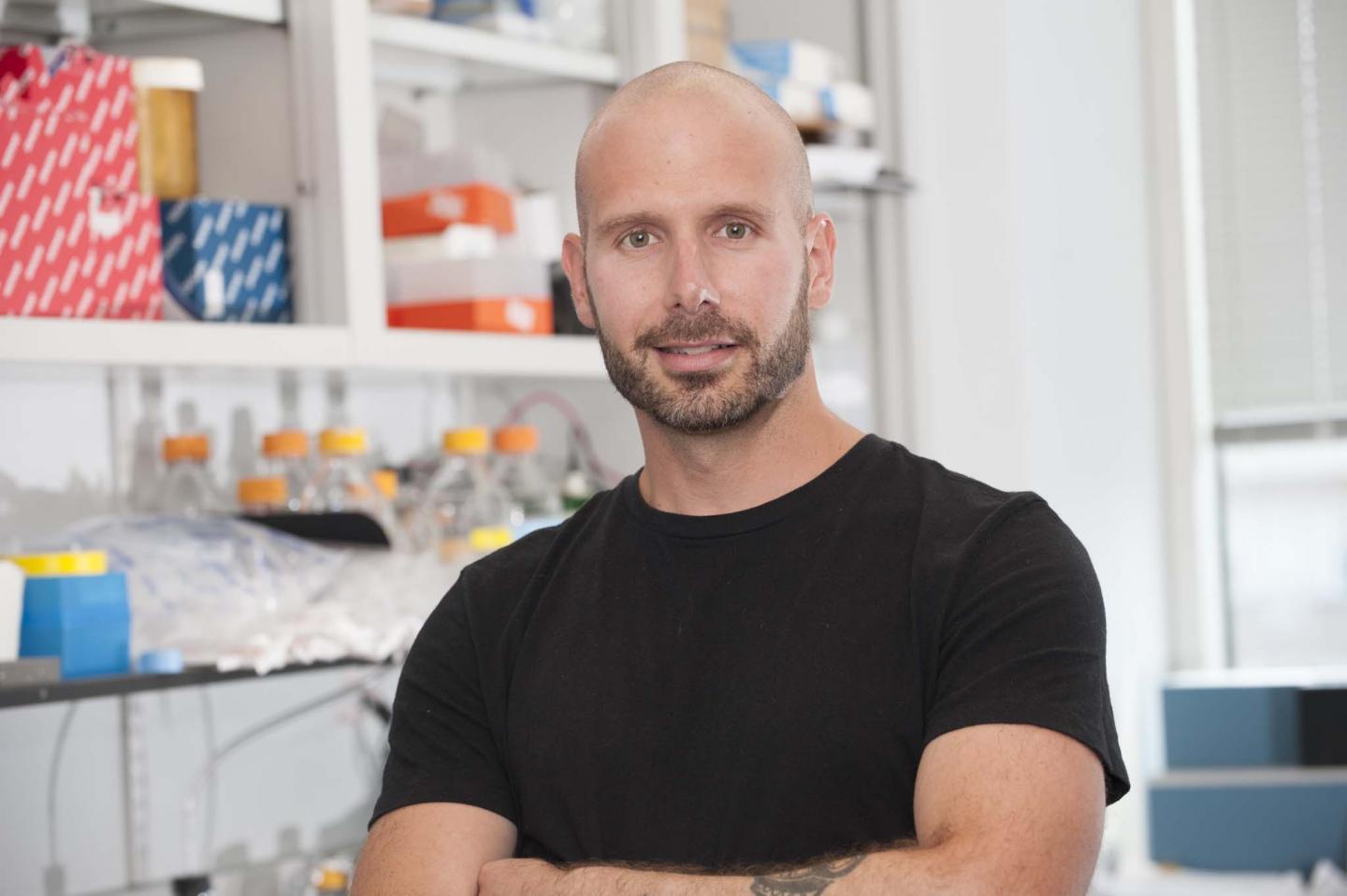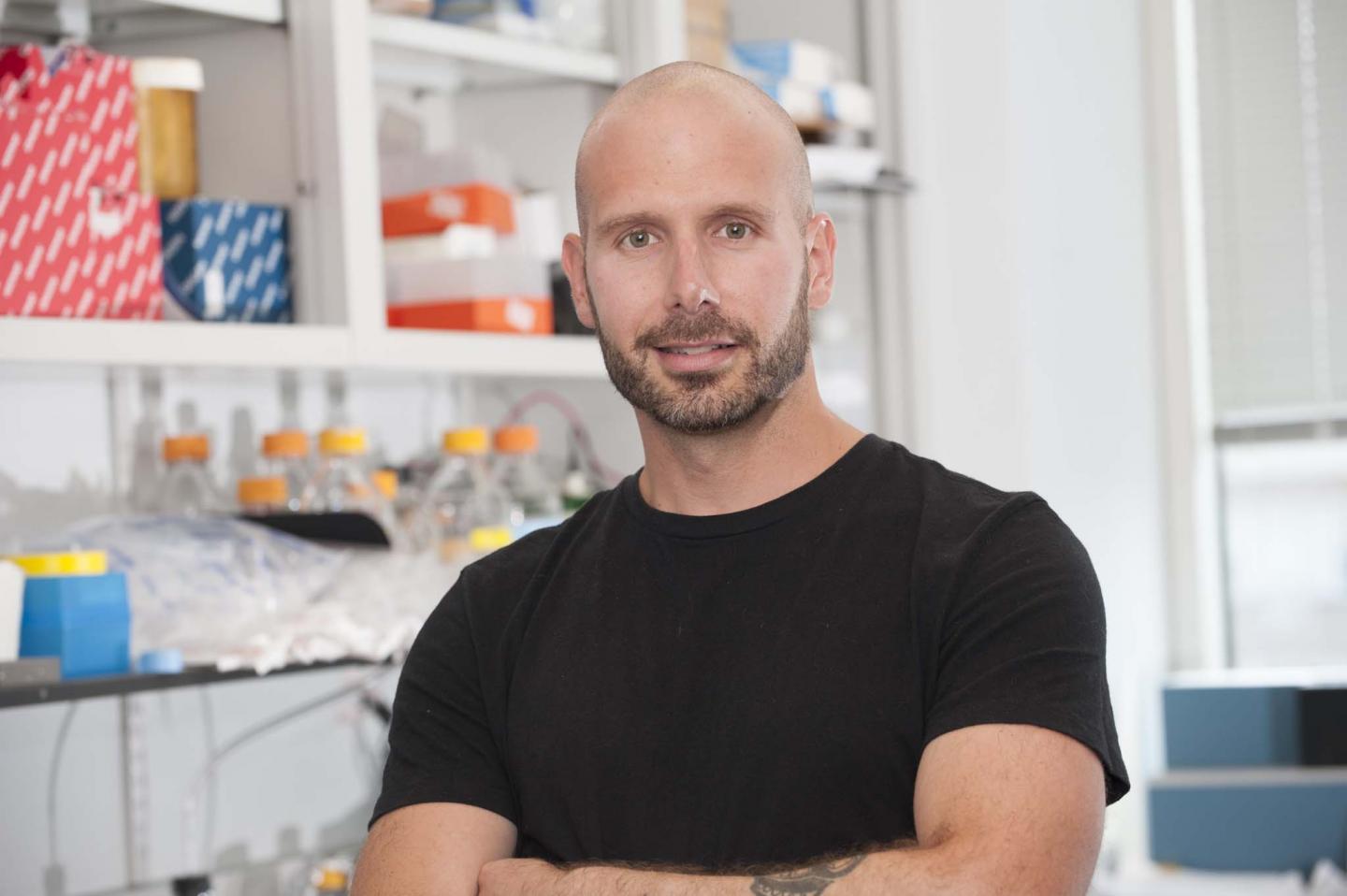
Credit: UTA
A UTA researcher has won a five-year, $1.8 million grant from the National Institutes of Health to look at new ways to harness the body's own defense responses to fight pathogens like bacteria.
"Superbugs, or strains of bacteria that are resistant to multiple families of antibiotics, are an increasingly important problem and can prove life-threatening to patients," said Mark Pellegrino, UTA assistant professor of biology and lead investigator on the grant.
"My team is looking to harness the way mitochondria defend themselves to generate new ways to both boost innate immunity and improve resistance to infections."
Mitochondria have multiple functions within cells, including the production of energy and the metabolism of amino acids and lipids, as well as the regulation of programmed cell death.
When mitochondria are stressed by disease, toxins or infection, a protein enters the cell nucleus and binds to certain DNA sequences to unlock genes to repair the mitochondria. This signaling pathway is called the mitochondrial unfolded protein response.
In previous research, Pellegrino identified the protein ATFS-1 as the regulator of this mechanism in C. elegans, a primitive worm that is studied as it shares many characteristics with human biology. He then discovered that ATFS-1 and this signaling mechanism also play an important role in promoting a mitochondrial-associated defense strategy against infection.
"Mitochondria are an obvious target for pathogens, especially given their role in programmed cell death," Pellegrino said. "We plan to look at the way that pathogens interact with the mitochondria's defense and repair system – ATFS-1 and the signaling pathway – with the long-term goal of developing new treatment options for patients."
Pellegrino joined UTA in 2016 from Memorial Sloan Kettering Cancer Center in New York with a grant from The Cancer Prevention and Research Institute of Texas to study mitochondrial stress signaling in the context of cancer biology. His previous discovery that mitochondria are an important activator of innate immunity was published in the leading journal Nature in 2014.
His group will be housed in UTA's new Science & Engineering Innovation & Research Building or SEIR, a state-of-the-art teaching and research space focused on health-science discoveries that will be inaugurated in late September.
"One of the reasons I came to UTA was because of the SEIR building project, which really catapults UTA into a new level in teaching and research," Pellegrino said. "I look forward to collaborating with my colleagues across multiple disciplines in this new environment."
Clay Clark, UTA chair of biology, congratulated Pellegrino on his new success.
"Dr. Pellegrino is helping us build a very strong biology program with an increasing emphasis on health sciences," Clark said. "This new grant broadens the scope of his work on mitochondrial stress and immune response and brings a new optic to the issue of how to manage infections."
###
Media Contact
Louisa Kellie
[email protected]
817-524-8926
@utarlington
http://www.uta.edu
Original Source
https://www.uta.edu/news/releases/2018/08/Pellegrino%20release.php





